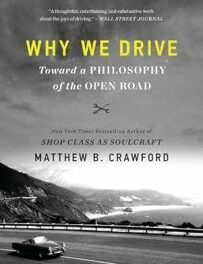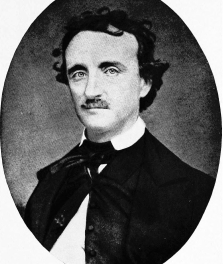We support our Publishers and Content Creators. You can view this story on their website by CLICKING HERE.
Will this Democratic defeat trigger another batch of wilderness years for the party? And if so, how long will this period last?
The recently concluded presidential election is not without its historical parallels and ironies, both of which speak to the country’s immediate future, as well as to the future of the Democratic Party. At the same time, both return us to the only Democrats elected to the presidency between the Civil War and the reign of Franklin Roosevelt. That lonely pair would be Grover Cleveland and Woodrow Wilson.
The most obvious parallel would be the non-consecutive terms of Cleveland (our 22nd and 24th president) and Donald Trump (our 45th and soon-to-be 47th president). The less obvious parallel is the returning to power of the anti-Wilson Trump almost exactly 100 years after the death of the actual Wilson in 1924. More on that shortly.
Then there is the possibility that the Democrats could be heading into the political wilderness, which was the party’s fate following their defeats in 1896 (when William McKinley defeated William Jennings Bryan, the anti-Cleveland Democrat) and again in 1920 (when Warren Harding ended eight years of the Wilson administration). Which brings us to 2024.
Will this Democratic defeat trigger another batch of wilderness years for the party? If so, will those years match or exceed the sixteen years between their defeat in 1896 and Wilson’s election in 1912? Or will this time in the wilderness be closer to the dozen years between 1920 and the election of FDR in 1932? We’ll see.
There is no precise measurement of “wilderness years,” but the presumption is that it’s longer than just one or even two election cycles—and certainly longer than the eight year run of a re-elected president. There was no suggestion of Democratic wilderness years during the Eisenhower presidency or of Republicans occupying similar territory during the Clinton years.
In any case, to land in the political wilderness suggests that things have gone seriously awry and that party leaders need to do some equally serious reflection and re-thinking while sorting themselves and their message out. Such a process can–and sometimes should–take a good deal of time to resolve.
In 1896 the party spurned the conservative small government, gold standard policies of the departing Cleveland to embrace the “free silver,” cheaper money populism of Bryan, who would lose again in 1900. After a brief flirtation with a conservative candidate in 1904 the party returned to Bryan and a third defeat in 1908.
Wilson’s victory in 1912 was made possible by the split within the Republican party between sitting president William Howard Taft and former President Theodore Roosevelt. Still, the party was groping its way toward acceptance of Roosevelt-style big government progressivism. And the Wilson presidency completed that acceptance.
Something similar happened after 1932. Candidate Franklin Roosevelt, like Wilson in 1912, did not lay out a big government, big spending agenda. But once in office he moved aggressively in that direction.
Democrats have a tendency to be, shall we say, less than candid with the voters while campaigning. Consider candidate Biden in 2020. An open border and an energy shut down were not exactly heavily promoted campaign promises.
So just what will the party do now that it is once again out of power? Will it regard this setback as just that–meaning a temporary setback? Or will they act as though they have been cast into the political wilderness? In other words, will they re-think and re-tool or will they not? We’ll see.
The early returns, meaning candidate Harris’s concession speech, suggest that no serious rethinking is necessary. But losing again to Donald Trump should suggest a different approach. It’s one thing to lose to a normal Republican, meaning the sort of Republican that Democrats normally have for lunch. It’s quite something else to lose to someone whom Democrats regard as an empty-headed, foul-mouthed, combination showman, racist and fascist. Such a defeat should lead to some serious re-thinking.
It certainly ought to make good sense for Democrats to take a second look at things and then to entertain some serious second thoughts. Let me suggest that Democrats should think of Donald Trump as something other than any of the epithets listed above. They should think of the president-elect as the anti-Woodrow Wilson, which in many respects is just what he is.
A second Trump presidency is not going to add more layers to an already over-layered bureaucracy. A re-elected Trump is not going to build onto the edifice of the big government progressivism initiated by Theodore Roosevelt and then expanded upon by Woodrow Wilson. If anything, he is likely going to try to eliminate some of that edifice, beginning perhaps with the Department of Education.
Given his own experience during the height of covid, Trump is not likely to adopt Kamala Harris’s Wilsonian-style pledge to rely on the “experts.” If anything, he is going to begin the long process of restoring constitutional government, rather than government by bureaucratic edict.
In addition, there will be no Trumpian crusades to match the Wilsonian crusade to “make the world safe for democracy.” Therefore, there will likely be no Wilsonian-style move to shut down domestic wartime dissent. If anything, there will be an effort to restore debate, because there likely will be action against any attempt to shut down debate on our college campuses.
What’s a good Democrat to do in the face of all this? Well, the Democrats have some searching questions to ask of one another. And then they have important decisions to make. One key question to answer is this: Are we essentially a liberal party or a leftist party?
As things stand now, Democrats campaign as liberals and then try to govern as leftists. This facade needs to end. Just ask Bernie Sanders and his supporters. It’s time either to emerge from the political closet and campaign in the mold of Senator Sanders or return to the model of Hubert Humphrey. The choice is theirs to make, and making such a monumental decision may take a good while to resolve.
At least one more critical decision needs to be made as well. Should Democrats keep trying to appeal to voters as members of various groups, whether they be identity groups or victim groups or some combination of the two? Or should they take a page from the allegedly “divisive” Trump and appeal to voters as fellow Americans?
In the meantime, a successful second Trump administration has an opportunity to restore America as a successful commercial republic, thereby leaving Sanders-style politicking and governance somewhere in the rear view mirror. It also has an opportunity to end the virtual 50-50 split/cycle in recent Presidential elections and establish one-party dominance for a period of time longer than, say, eight years. Ironically, this is precisely what William McKinley did in 1896 when he followed what’s-his-name into the White House. Oh, that would be Grover Cleveland, or that other president who served non-consecutive terms.
In any case, the question of the moment remains on the table: What’s a good Democrat to do in the aftermath of this defeat? Welcome to what seems to be shaping up as your wilderness years, Democrats.
This essay was first published in the Minnesota Star Tribune.
The Imaginative Conservative applies the principle of appreciation to the discussion of culture and politics—we approach dialogue with magnanimity rather than with mere civility. Will you help us remain a refreshing oasis in the increasingly contentious arena of modern discourse? Please consider donating now.
The featured image is courtesy of Pixabay.

 Conservative
Conservative  Search
Search Trending
Trending Current News
Current News 






